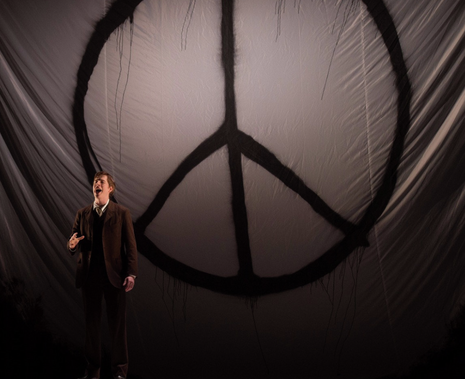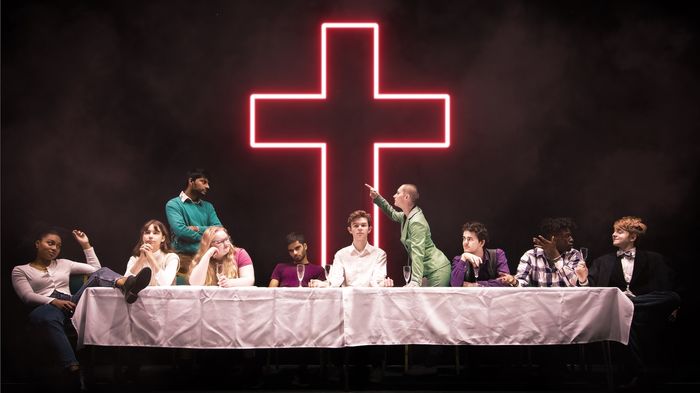‘A context not a topic’: Climate Crisis and theatre making
Theatre Editor Stanley Lawson interviews Milo Harries about a series of Climate Crisis theatre workshops running in Cambridge this month

Where did the idea for the project come from?
About 50 playwrights have been commissioned to write short pieces in response to the climate crisis, and these are available for most of the duration of COP26 to be performed for free – I’m taking four of these pieces (all of which are just one performer) and workshopping one each week in November. I especially want to focus on the interaction between the attendees at the workshop, the actor and the text, to see what emerges out the encounter between the three.
“These are available for most of the duration of COP26”
So, the workshop format is perfect what you’re trying to do?
Yes, I really enjoy workshopping texts and the open format often suits what I’m trying to explore, both in terms of encounter and character. There’s a brilliant ‘between-ness’ in workshops between audience and performer.
What’s your background in theatre – where do you come to running these workshops from?
I’m a PhD student in the field of climate crisis and theatre, studying here in Cambridge. In terms of performing, my experience is mostly in contemporary opera, but the workshops won’t involve any operatic elements.
How will the workshops run as open and interactive sessions?
I’m thinking it’ll be like a cross between a rehearsal and a seminar – the people in the room other than myself and the actor will be director and class and teacher. The attendees will be invited to contribute to what the actor is doing with the text; I’ve been inspired by the conversational workshop techniques used by theatre companies like Coney. They’re the kind of exercises which are trying to alter the angle from which people approach their beliefs and attitudes, especially when interacting with other people, while always primarily speaking to their own experience and knowledge.
Any other inspirations for the kind of work you’ll be doing in these sessions?
David Finnigan – who’s written one of the pieces we’ll be working on – has a lot of really interesting stuff to say in his work about theatre and the climate crisis. He shares with my supervisor Zoë Svendsen an awareness of the climate crisis not being a topic for theatre but a context for all theatre makers at the moment - a really vital idea which emerges out of both of their work.
How does the Climate Crisis affect theatre making then – if that’s not too flippant a question?
Well of course it affects, or will affect, every aspect of our lives. Our conception of future time is inextricable from the climate crisis – or at least it ought to be that way now. My horizon, your horizon, shared horizons, all of these are built on assumptions of stability that are completely false. Even if you’re not talking about the climate crisis specifically, or explicitly, if you are talking about the now and the future – which theatre always is to some extent – then you are still talking about the climate crisis. I think these crumbling assumptions translate really well into theatre. Zoë Svendsen talks about ‘staging out of not knowing’ – which is a brilliant way of thinking about this really unstable future we’re looking into in theatrical terms. Finnigan, for example, talks about an iterative process for theatre in response and as part of the climate crisis; one which offers some hope, a kind of positive process of figuring out and revealing the direction for the next move.
So what’s next after the workshops? Are you planning any kind of continuation beyond the COP26 period?
I’m also organising some R&D sessions this term with student actors, to try to dig into the detail of some of these texts and see what emerges out of them in longer more intensive sessions. I think more long term we’ll be looking to put on some kind of performance, maybe late next term or early Easter, but what form that might take is very much dependent on the process.
You’re staging out of not knowing?
Exactly! I just hope people get something out of these sessions, and we give it the momentum to do more of this kind of work later this year.
 Features / Should I stay or should I go? Cambridge students and alumni reflect on how their memories stay with them15 December 2025
Features / Should I stay or should I go? Cambridge students and alumni reflect on how their memories stay with them15 December 2025 News / Cambridge study finds students learn better with notes than AI13 December 2025
News / Cambridge study finds students learn better with notes than AI13 December 2025 News / Uni Scout and Guide Club affirms trans inclusion 12 December 2025
News / Uni Scout and Guide Club affirms trans inclusion 12 December 2025 Comment / The magic of an eight-week term15 December 2025
Comment / The magic of an eight-week term15 December 2025 News / News In Brief: Michaelmas marriages, monogamous mammals, and messaging manipulation15 December 2025
News / News In Brief: Michaelmas marriages, monogamous mammals, and messaging manipulation15 December 2025









